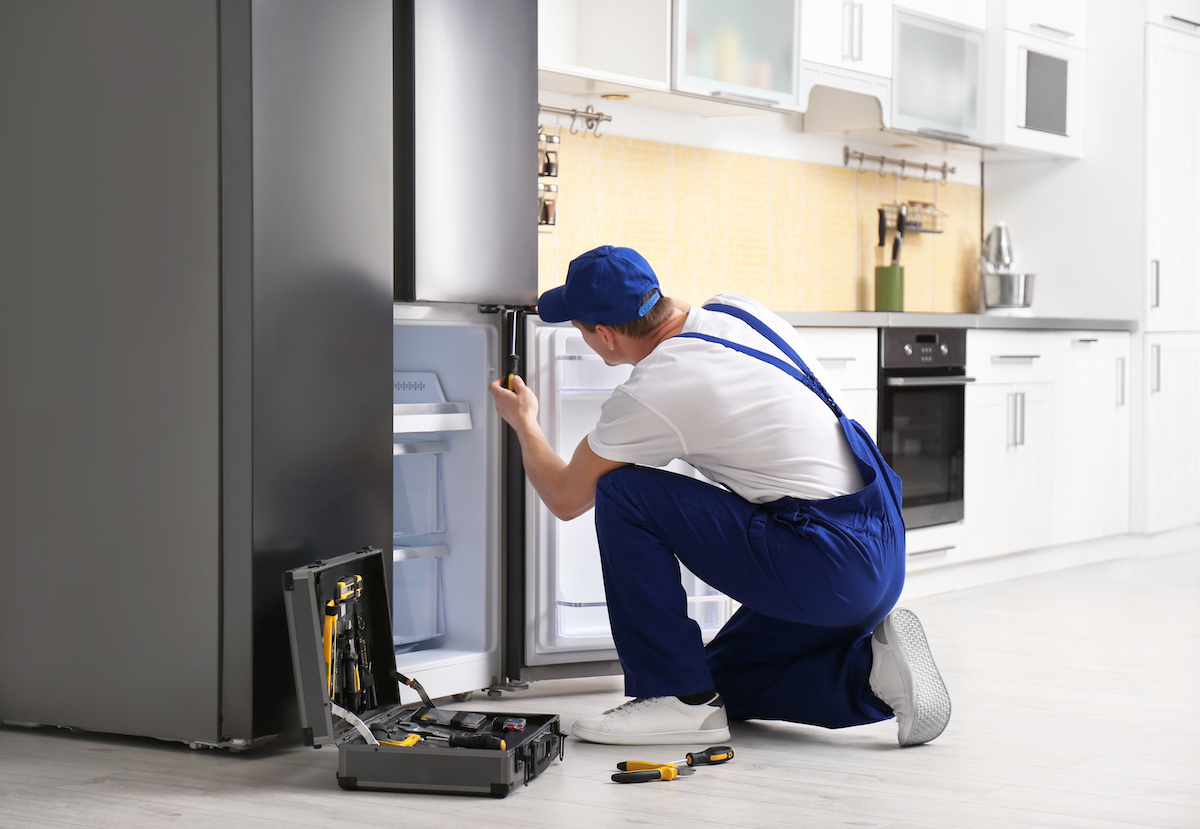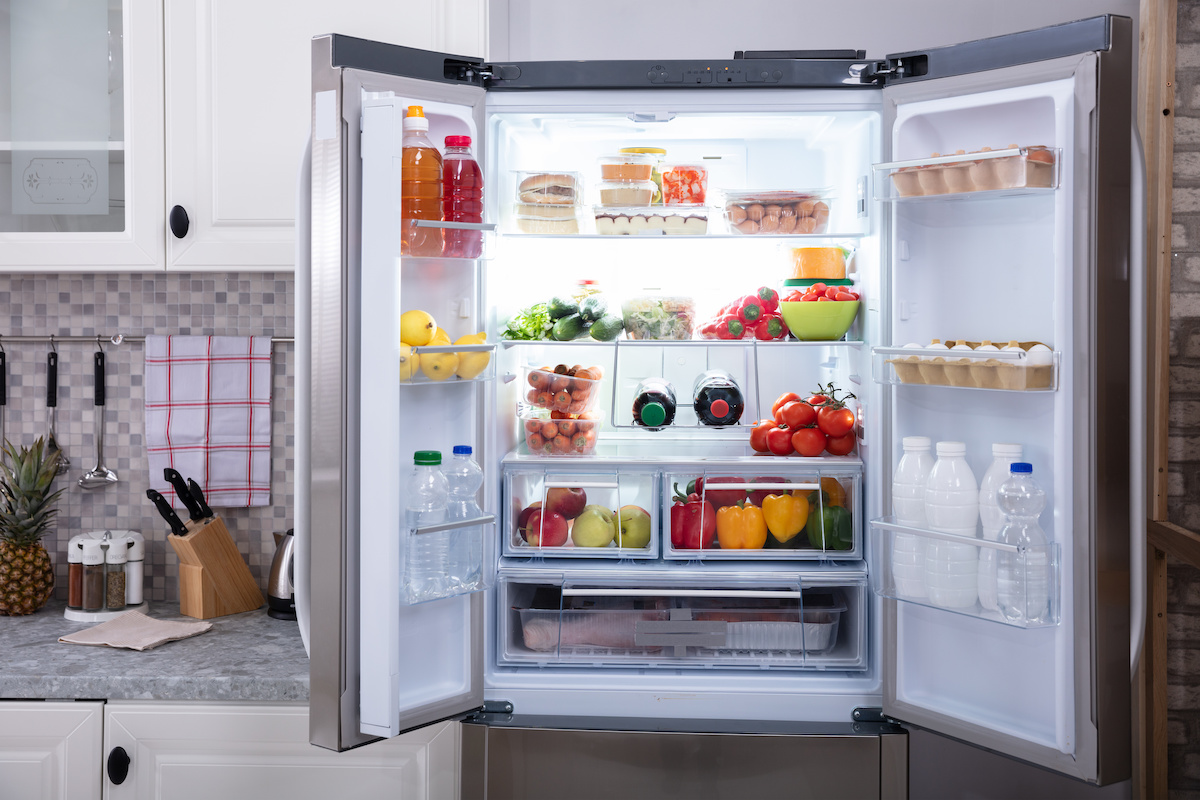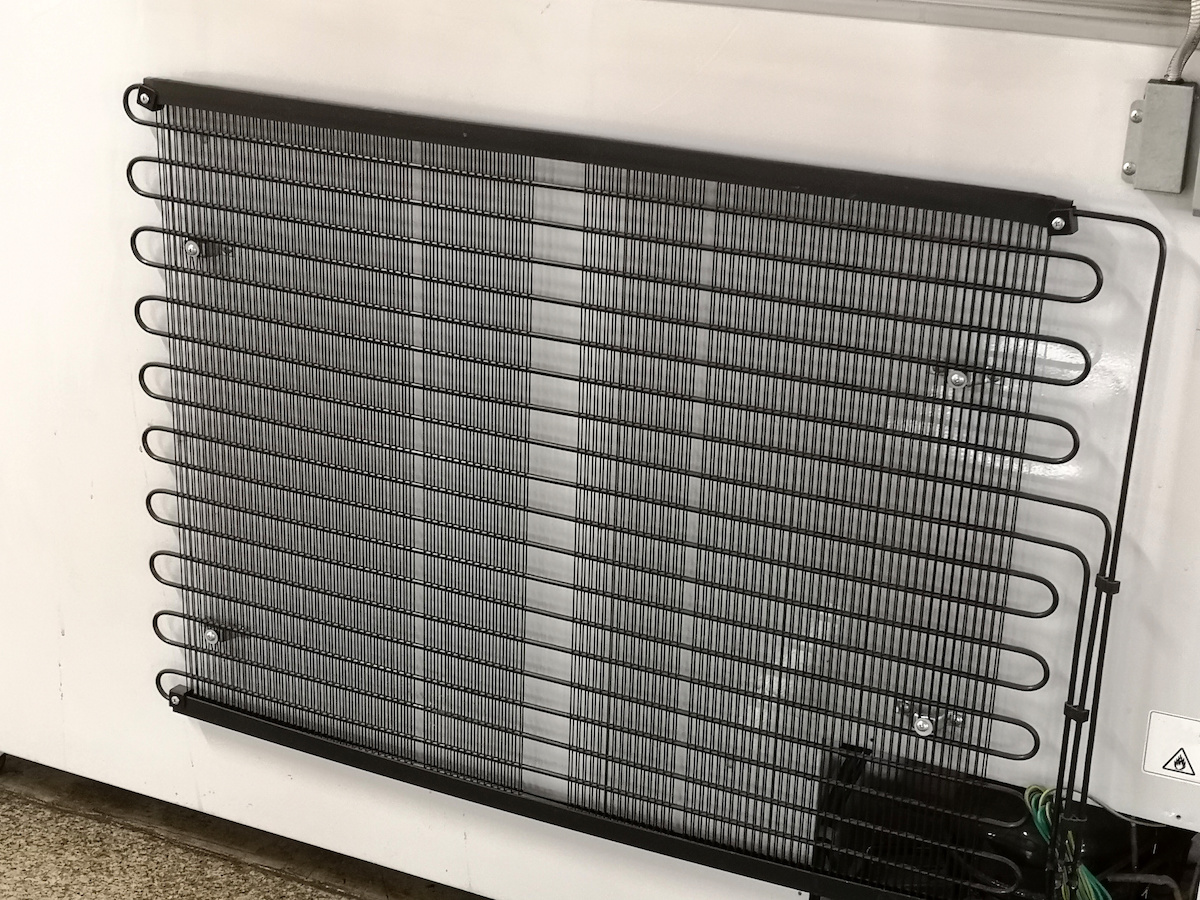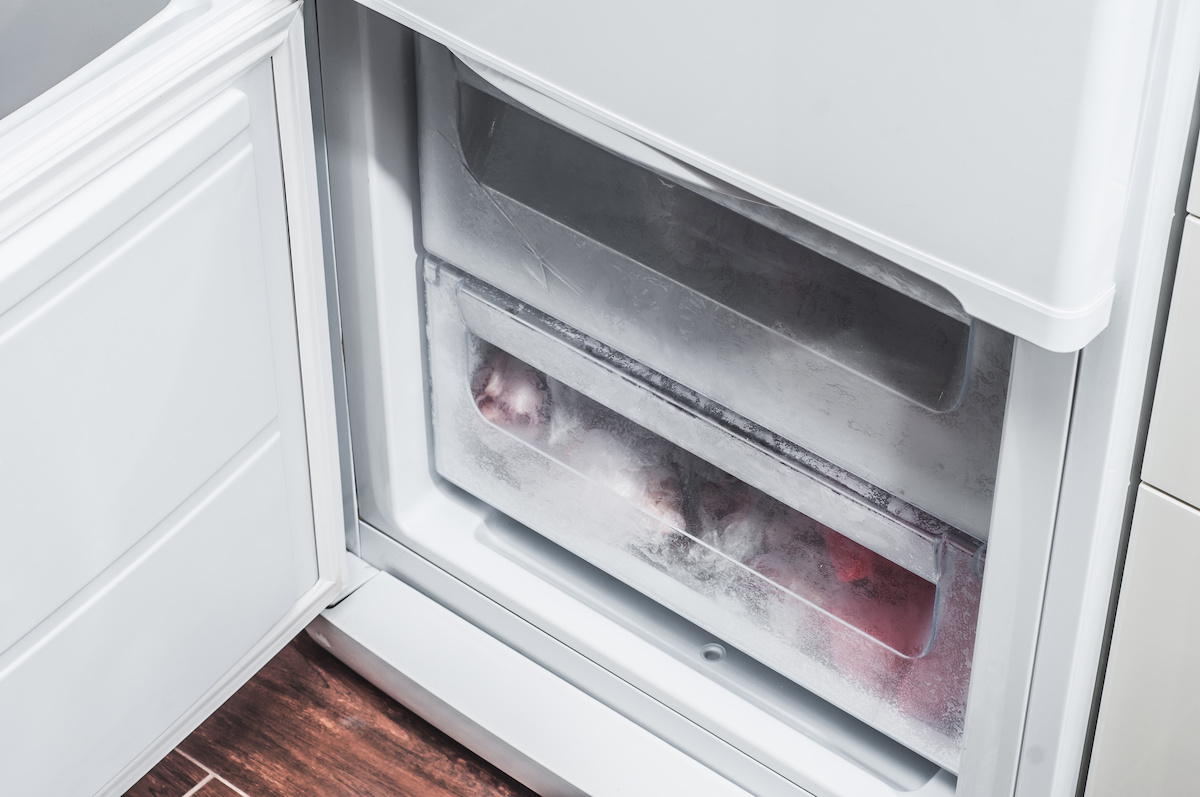
5 Common Refrigerator Problems and How to Fix Them
Refrigerators are essential appliances in most homes, and when they break down, it is very frustrating and inconvenient. It can also be very costly, not just to repair or replace the refrigerator but to replace the spoiled contents as well. Fortunately, many common refrigerator problems are simple to fix and do not need the help of a professional.
We’ll discuss the five most common refrigerator problems and provide step-by-step instructions on how to fix them throughout this article.
However, if after sifting through this article, you still find you can’t fix your refrigerator on your own, give our team at Atlanta Appliance Services a call. We are a personal repair service that focuses on the needs of the individual family. When you need your appliance fixed or installed with expertise, we are the professionals you can trust.
Refrigerator Problems 1: Not Cooling Properly
One of the most common refrigerator problems is when it is not cooling properly.
There are a few potential causes for this issue, but typically the cause lies somewhere in:
- A faulty thermostat
- Dirty condenser coils
- A malfunctioning evaporator fan
- A broken compressor
You’ll need to check each of these areas to pinpoint and fix the problem. Here’s how:
Step 1: Check the Thermostat
The thermostat is the component that controls your refrigerator’s temperature. If it’s not working correctly, it can cause the fridge to stop cooling.
Start by checking the thermostat’s temperature setting. Make sure it’s set low enough to keep your food cold. If it’s set too high, turn it down and see if that fixes the problem.
Step 2: Check the Condenser Coils
The condenser coils are responsible for releasing heat from the refrigerator. If they’re dirty, they can’t function properly and may cause the fridge to stop cooling.
Locate the coils at the back of the fridge or underneath the fridge and clean them with a vacuum cleaner or a brush. Make sure to unplug the fridge before cleaning the coils.
Step 3: Check the Evaporator Fan
The evaporator fan circulates cold air throughout the fridge. If it’s not working correctly, the fridge may not cool properly. Locate the fan in the freezer compartment and check if it’s spinning freely. If it’s not, replace the fan motor.
Step 4: Check the Compressor
The compressor is the heart of the refrigerator. If it’s not working correctly, the fridge won’t cool.
To check if the compressor is working, listen for a humming sound. If you don’t hear anything, unplug the fridge and check the compressor’s wiring for damage.
If you find damage, you may need to replace the compressor or call in a professional to fix it.
Refrigerator Problems 2: Making Strange Noises
If your refrigerator is making strange noises, it’s usually a sign that something isn’t working right. Here are some common causes of refrigerator noises:
- Dirty condenser fan motor
- Malfunctioning evaporator fan motor
- Loose or damaged compressor mounts
- Faulty water inlet valve
To fix the refrigerator problem, you’ll need to check a few areas of the fridge to pinpoint the problem:
Step 1: Check the Condenser Fan Motor
The condenser fan motor is responsible for releasing heat from the fridge. If it’s dirty or damaged, it can cause the fridge to make strange noises.
Locate the fan motor and clean it with a vacuum cleaner or a brush. If the fan motor is damaged, replace it.
Step 2: Check the Evaporator Fan Motor
The evaporator fan motor circulates cold air throughout the fridge. If it isn’t working properly, it can cause the fridge to make weird noises.
Locate the fan motor in the freezer compartment and check to see if it’s spinning freely. If it isn’t, replace the fan motor.
Step 3: Check the Compressor Mounts
The compressor mounts hold the compressor in place. If they’re loose or damaged, they can cause the fridge to vibrate which makes a humming sound or rattle.
Check the compressor mounts and tighten or replace them as needed.
Step 4: Check the Water Inlet Valve
If your fridge has a water dispenser or an ice maker, a faulty water inlet valve can create strange noises.
If the water inlet valve is the problem, it may need to be replaced.
Refrigerator Problems 3: Ice Maker Not Working
A common issue in many refrigerators is when the ice maker stops working.
Here are some potential causes for a broken ice maker:
- Clogged water filter
- Faulty water inlet valve
- Malfunctioning ice maker
- Frozen water line
Here’s a closer look at each of these areas and where you can check to solve the problem:
Step 1: Check the Water Filter
If your fridge has a water filter (most do), a clog can keep the ice maker from working. Try replacing the filter to see if that solves the problem.
Step 2: Check the Water Inlet Valve
The water inlet valve controls the water flow to the ice maker. If it’s faulty, it can keep the ice maker from working.
Check the valve and replace it if necessary.
Step 3: Check the Ice Maker
If the water flow and inlet valve are not the issue, the problem could be the ice maker itself. Check the ice maker’s mechanism and make sure it’s not stuck or broken.
If it is, you’ll need to replace the ice maker.
Step 4: Check the Water Line
If the water line to the ice maker is frozen, it can keep the ice maker from making ice.
To fix the problem, unplug the fridge and locate the water line. Use a hairdryer to thaw the line and try the ice maker again.
Refrigerator Problems 4: Leaking Water
A leaking fridge can be a big problem, causing damage to your floors and nearby cabinets.
Here are some potential causes of a leaking fridge:
- Your defrost drain is clogged or frozen
- Your water supply line is damaged
- You have a faulty water inlet valve
- Your drain pan is cracked
If one of these is the problem, follow these steps to fix it:
Step 1: Check the Defrost Drain
The defrost drain removes water from the freezer during the defrost cycle. If it’s clogged or frozen, water can build up and leak out of the fridge.
Find the defrost drain and clean it well with a pipe cleaner or hot water.
Step 2: Check the Water Supply Line
The water supply line brings water to the fridge. If it’s damaged or not connected correctly, it can cause leaks.
Check the water supply line and replace or reconnect it as necessary.
Step 3: Check the Water Inlet Valve
A broken or cracked water inlet valve can cause leaks.
Check the valve and replace it if necessary.
Step 4: Check the Drain Pan
The drain pan catches water that drips from the fridge during the defrost cycle. If it’s cracked or damaged, it can cause leaks.
Check the drain pan and replace it if necessary.
Refrigerator Problems 5: Fridge Door Not Closing Properly

If your fridge door doesn’t close properly, it can cause the fridge to lose its cooling ability and waste energy.
Here are some potential causes of a door that doesn’t close:
- Dirty door gasket
- Misaligned door hinges
- Broken door closer
To figure out what the issue is, follow these steps:
Step 1: Check the Door Gasket
The door gasket is the rubber seal around your refrigerator door. If it’s dirty or damaged, it can cause the door not to close properly.
Clean the gasket with warm soapy water and inspect it for damage. If it’s broken, you will likely have to replace the gasket.
Step 2: Check the Door Hinges
The door hinges hold the door in place. If they’re misaligned or damaged, they can prevent the door from closing correctly.
Check to make sure the hinges are aligned properly and replace them as necessary.
Step 3: Check the Door Closer
The door closer is the component that helps the door close automatically.
If it’s broken, the door won’t close the way it is supposed to. Check out the door closer to make sure it’s working properly and replace it if necessary.
Need Help Solving Your Refrigerator Problems?
Refrigerator problems can be frustrating, but many of the common issues can be fixed with the right knowledge and tools.
Taking care of your fridge and fixing frustrating problems as soon as they arise can extend the lifespan of your appliance and save you money on costly repairs or replacements.
With a little effort and know-how, you can keep your fridge running smoothly for years to come.
As a general note, don’t forget to unplug your fridge before attempting any repairs, and if you’re not comfortable with repairing on your own, don’t hesitate to call a professional appliance service company.
At Atlanta Appliance Services, we are known for our quality services, exceptional efficiency, and the highest level of professionalism. We will exceed your expectations and ensure complete satisfaction with your appliance repair services in Loganville, GA, and the surrounding areas.
When you need your appliance fixed or installed with expertise you can trust, contact us!



